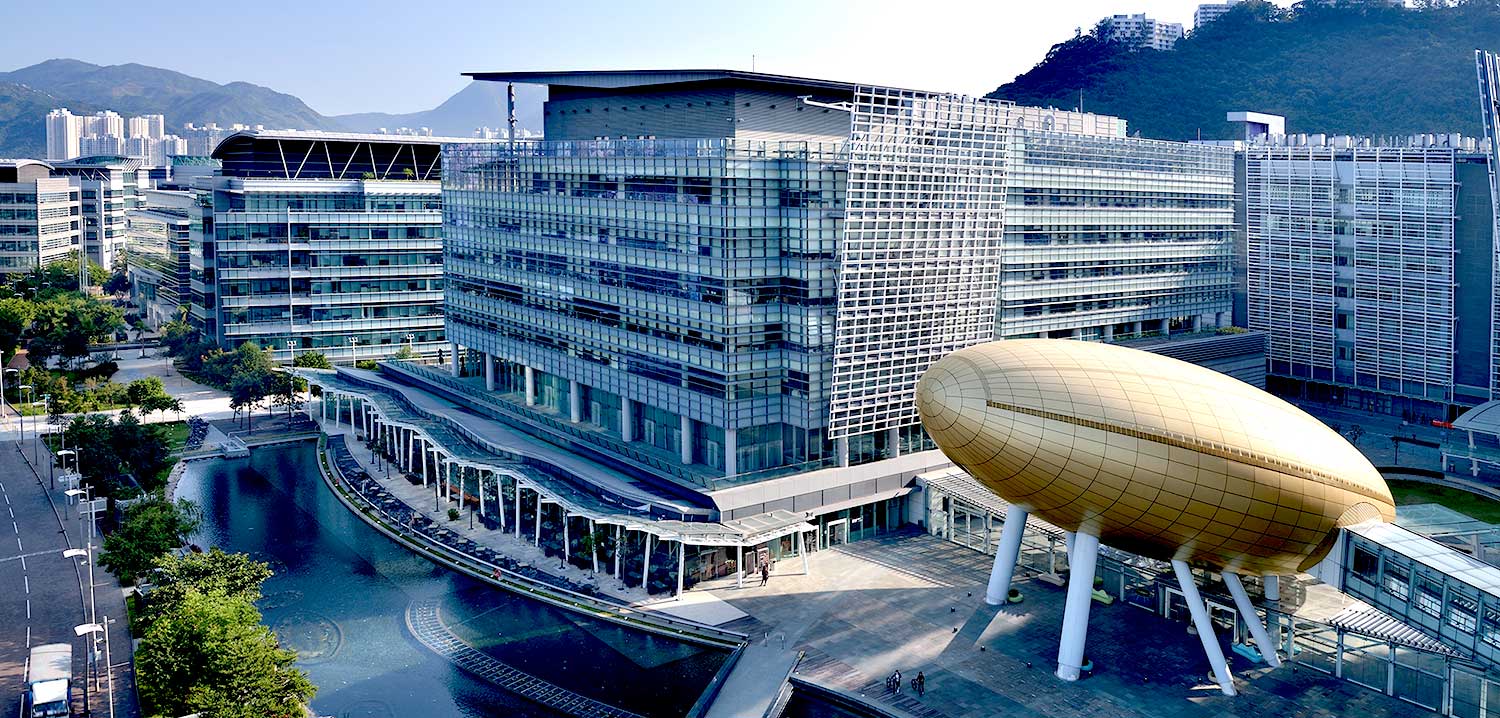Plenaries
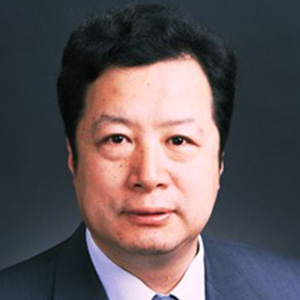
Research Progress of Intelligent Sensing Technology
Zhuangde Jiang
Academician of Chinese Academy of Engineering, China
Time: 9:00am - 9:45am, July 9
Venue: Charles K. Kao Auditorium
High-end intelligent sensor is one of the key technologies in the emerging industries such as intelligent manufacturing, defense industry, Internet of Things, big data, robots, smart cars, precision health care and so on. In order to promote the development of high-end sensor technology, research for the key technologies such as chip design, manufacturing process, packaging and testing of high-end MEMS sensor have been studied. The report introduces the team's research progress in high-end intelligent sensors, especially the latest achievements in pressure sensors, acceleration sensors, integrated sensors, ultra-high temperature sensors, ultrasonic sensors, viscous density sensors, and discusses the application of intelligent sensing technology in aerospace, national defense, military industry, intelligent manufacturing and other fields.
Zhuangde Jiang, professor of Xi’an Jiaotong University (XJTU), academician of Chinese Academy of Engineering. He is currently the vice chairman of Chinese Society of Mechanical Engineering, vice chairman of Chinese Society of Micro-Nano Technology, director of International Joint Research Laboratory of “Micro/Nano Manufacturing and Measurement Technology”. Professor Jiang has engaged in a long-term research in micro-nano manufacturing and sensors, MEMS devices, precision measurement and precision machining technology and equipment. He has won many prizes and awards, including two National Awards of Technological Innovation, one National Award of Science and Technology Progress. He received the Prize for Scientific and Technological Progress of Ho Leung Ho Lee Foundation. He is the recipient of award for Outstanding Contribution to Degree and Graduate Education in Xi'an Jiao Tong University.
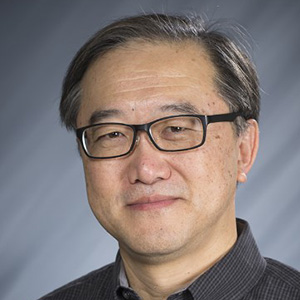
Digital Printing and Imaging Systems – Old Dog with New Tricks
George T.C. Chiu
Time: 9:45am - 10:30am, July 9
Venue: Charles K. Kao Auditorium
Digital printing and imaging systems are well-recognized mechatronics devices. They are an integral part of our daily life. Although the traditional print media has been in decline, recent interest in using printing as a scalable fabrication/manufacturing process has renewed the interest in functional printing as an additive manufacturing process. In addition to deposit precisely controlled amount of material with the necessary spatial accuracy, interaction between the material and the substrate as well as the material with themselves all contribute to the geometry, functionality and quality of the final product, be it an image, device or structure. In this talk, I will present our experiences in applying mechatronic techniques to several printing and imaging processes as well as share some insights gained when translating these approaches to other applications with similar implementation and real-world constraints.
George Chiu is the Assistant Dean for Global Engineering Programs and Partnerships at the College of Engineering and a Professor in the School of Mechanical Engineering with courtesy appointments in the School of Electrical and Computer Engineering and the Department of Psychological Sciences at Purdue University. Dr. Chiu received the B.S. degree in Mechanical Engineering from National Taiwan University in 1985 and the M.S. and Ph.D. degrees from the University of California at Berkeley, in 1990 and 1994, respectively. Before joining Purdue in 1996, he worked for the Hewlett-Packard Company, designing inkjet printer and multi-function devices. From September 2011 to June 2014, he served as the Program Director for the Control Systems Program in the Engineering Directorate of the US National Science Foundation. Dr. Chiu's current research interests are mechatronics and dynamic systems and control with applications to digital printing and imaging systems, digital fabrications, human motor control and robotics, motion and vibration perception and control. He received the 2012 NSF Director's Collaboration Award, the 2010 IEEE Transactions on Control System Technology Outstanding Paper Award and the Purdue University College of Engineering 2010 Faculty Engagement/Service Excellence Award and 2006 Team Excellence Award. Professor Chiu is the Editor-in-Chief for the IEEE/ASME Transactions on Mechatronics. He served on the Executive Committee of the ASME Dynamical Systems and Control Division from 2007 to 2015 and was the Chair of the division from 2013 to 2014. He is a Fellow of ASME and the Society for Imaging Science and Technology (IS&T) and a senior member of IEEE.
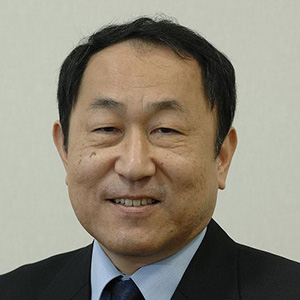
Soft Robotics for Industrial Handling
Sadao Kawamura
Director, Robotics Research Center, Ritsumeikan University, Japan
Vice President, Chitose Robotics Inc., Japan
Time: 9:00am - 9:45am, July 10
Venue: Charles K. Kao Auditorium
Up to this point, robotics has been based on dynamics and control of rigid bodies. However, there are many tasks that robots with only rigid bodies cannot carry out. There are great expectations that soft robotics can solve these problems. For example, if there is a geometrical error when a rigid bodied robot comes into contact with a rigid object, an extremely large force is generated. If, however, the robot has a flexible structure, it can absorb geometrical errors. Not only may this, but living things are soft and, it therefore be possible for soft robots to be able to carry out various tasks. However, merely softening the structure of a rigid robot causes problems such as unnecessary deformation, vibration phenomenon, and the deterioration of position control precision.
In this talk, I will explain how such problems can be solved and how soft robots can be used for real industrial handling tasks. In order to solve inherent problems with soft robots, we have introduced new approaches to both mechanism and control. To suppress vibration, we have experimentally demonstrated that the rigidity of pneumatically-driven flexible fingers can be increased using a variable stiffness device that includes stacked passive elements, thereby achieving the suppression of deformation and vibration. We have also discovered that several types of robotic hands with flexible elements can be positioned highly precisely using a calibration-free visual feedback control that we have proposed.
Sadao Kawamura received a B.S. degree in Biophysical Engineering (1981), a M.S. degree in Mechanical Engineering (1983) and a PhD in Mechanical Engineering (1986) from Osaka University. He was an assistant professor at Osaka University from 1986 to 1987 and an associate professor at Ritsumeikan University from 1987 to 1994. Since 1996, he has been a professor in the Department of Robotics, Ritsumeikan University. From 2003 to 2006, he was a vice president of Ritsumeikan University. Since 2011, he has been the director of the Ritsumeikan University Robotics Research Center. He is currently the vice president of Chitose Robotics Inc. in Tokyo.
He has received SICE Best Paper Awards in 1987, 2000, 2009, and an ISCIE Best Paper Award in 1987, Fluid Power Technology Promotion Foundation Best Paper Awards in 1992 and 2010, and a Good Design Special Award in 2001. In 2016 he received an RSJ Distinguished Service Award.
Professor Kawamura is an associate member of the Science Council of Japan, a chairman of the robotics subcommittee of the Science Council of Japan, a member of the Engineering Academy of Japan, a fellow of the Japan Society of Mechanical Engineering, a fellow of the Robotics Society of Japan, a council member on the Robot Revolution Initiative in Japan and a member of the World Robot Summit Executive Committee. He is interested in both mechanisms and control of robots. He has proposed an Iterative Learning Control for nonlinear robot dynamics and a calibration-free visual feedback control within motion control theory. He has also developed parallel tendon-driven systems, pneumatic drive soft robots and several types of underwater operation robot.

The Grand Challenges of Science Robotics
Guang-Zhong Yang
Time: 9:45am - 10:30am, July 10
Venue: Charles K. Kao Auditorium
As the founding editor of Science Robotics, Prof Yang will discuss the recently published Grand Challenges of Science Robotics and its implication on the future development of intelligent mechatronics and precision manufacturing. The talk will use robotic surgery as an exemplar to provide a critical analysis of existing surgical robots for minimally invasive surgery and new research opportunities in allied disciplines. The talk will cover the latest developments in fully articulated, bio-inspired robot platforms that facilitate intra-luminal or extra-luminal anatomical curved pathway navigation with integrated sensing, vision and navigation. The lecture will also address issues concerning effective, natural human-robot interface, as well as micro-manipulator design.
Professor Guang-Zhong Yang is director and co-founder of the Hamlyn Centre for Robotic Surgery. Professor Yang is also the Chairman of the UK-RAS Network (https://ukras.org). The mission of the UK-RAS Network is to provide academic leadership in RAS, expand collaboration with industry and integrate and coordinate activities of the EPSRC funded RAS capital facilities, Centres for Doctoral Training (CDTs) and partner universities across the UK. Professor Yang’s main research interests are in medical imaging, sensing and robotics. He is a Fellow of the Royal Academy of Engineering, fellow of IEEE, IET, AIMBE, IAMBE, MICCAI, CGI and a recipient of the Royal Society Research Merit Award and listed in The Times Eureka ‘Top 100’ in British Science. Professor Yang is the founding editor of Science Robotics (https://robotics.sciencemag.org/) – a journal of the Science family dedicated to the latest advances in robotics and how it enables or underpins new scientific discoveries. He was awarded a CBE in the Queen’s 2017 New Year Honour for his contribution to biomedical engineering.
Keynotes
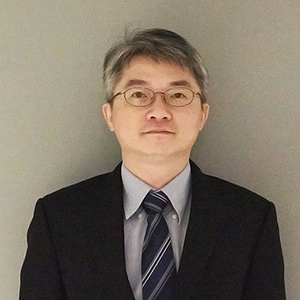
Development of Multi-Behavioral Robots
Pei-Chun Lin
Associate Chair, Department of Mechanical Engineering, National Taiwan University, Taiwan
Time: 9:00am - 9:25am, July 11
Venue: Charles K. Kao Auditorium
Dynamic and agile locomotion behaviors performed by animals demonstrate feasible but still very challenging styles of motions to be exhibited on artificial platforms. On the other hand, wheeled locomotion, which performs fast, smooth, and power-efficient motion on flat ground, also exhibits unique merit and is identified as one of the greatest human inventions. Here, we report on the development of multi-behavioral robots from both design and control aspects. On the design side, the robots were developed to have transformable wheeled and legged locomotion modes. On the control side, the robots were developed to perform dynamic legged locomotion using reduced-order dynamic models and using coupled oscillators to act as central pattern generators to plan and coordinate leg motions.
Pei-Chun Lin is a professor and Associate Chair in the Department of Mechanical Engineering at National Taiwan University (NTU), Taipei, Taiwan. He received B.S. and M.S. degrees in mechanical engineering from NTU in 1996 and 1998, respectively, as well as a M.S. in electrical engineering and computer science and a Ph.D. in mechanical engineering from the University of Michigan, Ann Arbor, United States, in 2005. He then worked as a postdoctoral research fellow in the Department of Materials Science and Engineering at the University of Pennsylvania before moving to NTU in 2007. He is the director of the Bio-inspired Robotic Laboratory (BioRoLa) at NTU. His research interests include bio-inspired robotics, mechanical design, sensor design/fusion, control, locomotion, and polymer applications in robotics. He is a member of IEEE, ASME, the Chinese Society of Mechanical Engineers (CSME), the Chinese Institute of Automation Engineers (CIAE), and the Robotics Society of Taiwan (RST). He served as the Secretary General of ASME Taiwan Section between 2012 and 2017. He was the recipient of the Ta-You Wu Memorial Award, Ministry of Science and Technology, Taiwan (i.e., Outstanding Young Investigator Award), and of the Distinguished Teaching Award, National Taiwan University (i.e., top 1% of faculty).
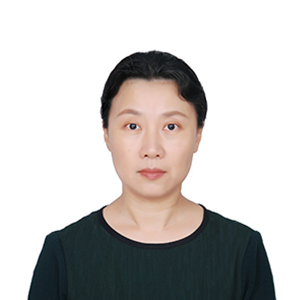
Make Motor-Driven Biped Robot Run Robustly and Efficiently
Rong Xiong
Leader, Robotics Laboratory, Zhejiang University, China
Time: 9:25am - 9:50am, July 11
Venue: Charles K. Kao Auditorium
Biped robots use discrete landing mode to walk on the ground with the structure imitating human or biped animals. In various legged robots, it has the minimum landing point requirement, so has a better adaptability to various environments, but it also faces greater challenges on walking fast and stable. This talk will give a report of robotics laboratory at Zhejiang University on this topic, introduce our recent efforts to make the biped robot “KongII”run robustly and efficiently.
Rong Xiong is the professor and leader of Robotics Laboratory at the College of Control Science and Engineering, Zhejiang University, the expert member for key special project on intelligent robots of Ministry of Science and Technology, China, and international trustee member of RoboCup. She received the B.Sc. degree and M.Sc. degree in Computer Science and Engineering from Zhejiang University in 1994 and 1997, respectively, and the PhD degree in Control Science and Engineering from Zhejiang University in 2009. Her research interests include autonomous mobile robots and legged robots.

High-accuracy Motion Estimation for MEMS in Complex Environments
Kenn Oldham
Associate Chair for Undergraduate Education, Department of Mechanical Engineering, University of Michigan, USA
Time: 9:50am - 10:15am, July 11
Venue: Charles K. Kao Auditorium
Microelectromechanical System (MEMS) technology provides transformational tools for actuation and sensing at small scales. Advanced MEMS transducers’ large energy density and high sensitivity frequently comes with a cost, however, as outputs are susceptible to a wide range of environmental and electronic perturbations. This can make it difficult to assess how trustworthy a given transducer measurement or movement may be. In this talk, I discuss ways in which we have used basic geometric relationships, arising naturally from design and fabrication constraints on MEMS devices, to enhance accuracy of system identification and state estimation techniques when applied to micro-scale systems. Sample applications include calibration of MEMS inertial sensors on a piezoelectric micro-stage, image registration with micro-scanners during endoscopic microscopy, and identification of peripheral artery properties with piezoelectric polymer sensors. In each case, state estimation of system dynamics can be augmented with one or more trusted geometric relationships to extract high-accuracy information, even in the presence of substantial noise, gain and bias uncertainty, and nonlinearity affecting sensor outputs.
Kenn Oldham is an Associate Professor and the Associate Chair for Undergraduate Education in the Department of Mechanical Engineering at the University of Michigan. He received the Ph.D. in Mechanical Engineering from University of California at Berkeley in 2006 and B.S. in Mechanical Engineering from Carnegie Mellon University in 2000. His research focuses on design, modeling, estimation, and control of micro- and small-scale systems, especially those based on piezoelectric materials. Applications include computer disk drives, micro-robotics, medical endoscopy, inertial sensing, and physiological monitoring. He is a recipient of the NSF CAREER Award and DARPA Young Faculty Award, and active member of the ASME Technical Committee on Mechatronics. He is also an Associate Director for the Michigan Center for Integrative Research in Critical Care (M-CIRCC).
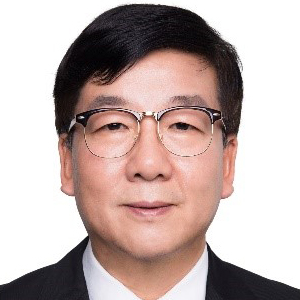
Bio-inspired Cable-driven Robotic Arms for Safe Manipulation
Guilin Yang
Director, Zhejiang Key Lab of Robotics and Intelligent Manufacturing Equipment Technology, China
Time: 10:15am - 10:40am, July 11
Venue: Charles K. Kao Auditorium
A bio-inspired Cable-Driven Robotic Arm (CDRA) possesses a number of advantages over the conventional articulated robotic arms, such as lightweight mechanical structures, high payload to weight ratios, and most importantly, safe manipulation in the human environment. As such, a bio-inspired CDRA, like a human arm, can be employed for not only industrial applications but also social services. To simplify the development efforts of CDRAs, a modular design concept has been employed. Several types of cable-driven joint modules have been proposed so that a variety of modular CDRA configurations can be constructed to cater for different application requirements. However, due to the unilateral driving property of cables, the existing modeling and design methods developed for conventional robotic arms are not readily applicable for CDRAs. In this talk, the critical design analysis issues pertaining to the modular CDRAs, such as the cable-routing schemes, kinematic analysis, force-closure analysis, stiffness regulation, tension distribution, and design optimization issues will be presented. Future research directions towards flexible and continuum CDRAs will be discussed.
Dr Guilin Yang received his B. Eng degree and M. Eng degree from Jilin University, China, in 1985 and 1988 respectively, and Ph.D. degree from Nanyang Technological University in 1999, all in Mechanical Engineering. He had been with the Singapore Institute of Manufacturing Technology (SIMTech), Singapore, as a senior scientist and the manager of the Mechatronics Group. He joined the Ningbo Institute of Materials Technology and Engineering (CNITECH), Chinese Academy of Sciences, in 2013. He is currently the deputy president of CNITECH and the director of Zhejiang Key Lab of Robotics and Intelligent Manufacturing Equipment Technology. His research interests cover a broad area of robotics and automation such as precision electromagnetic actuators, compliant mechanisms, parallel-kinematics machines, cable-driven robots, modular robots, and robotic automation systems. He has published over 270 technical papers in referred journals and conference proceedings, authored 3 books, and filed 50 patents. He was a recipient of 2014 R&D 100 Awards.


